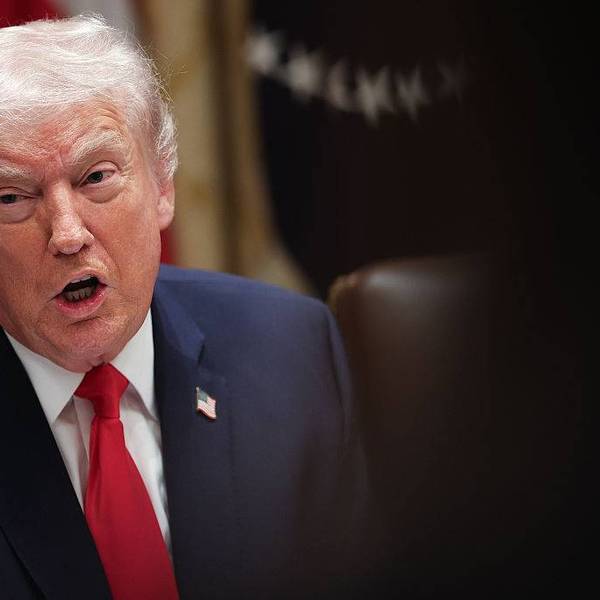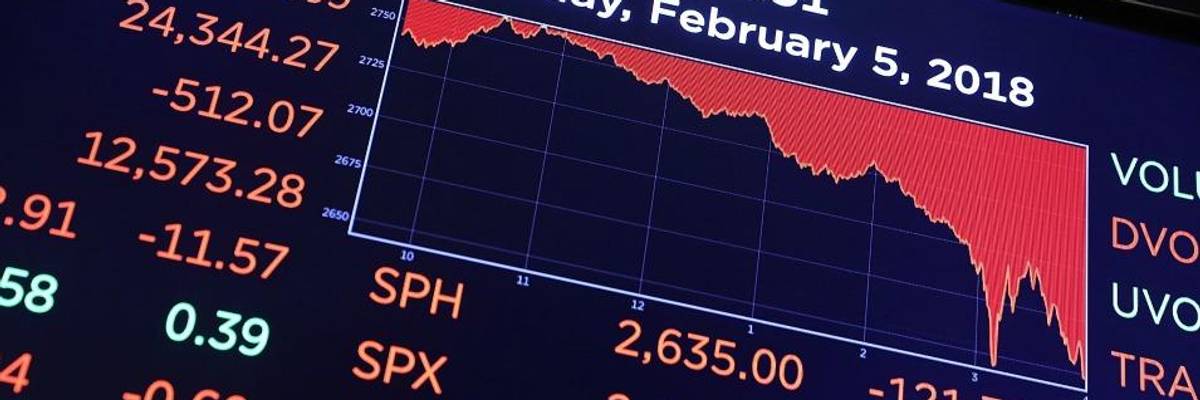Bucking the wisdom of his predecessors--who operated on the knowledge that stock prices go up and down, all for a variety of reasons--President Donald Trump has not been shy about taking personal credit for the recent highs of the stock market, but with Monday's historic drop on Wall Street the president has many people wondering if he'll take credit (or on who he'll cast the blame).
As USA Today reports:
Traditionally, presidents have avoided patting themselves on the back for Wall Street's highs, because they don't wish to be anchored down by its lows.
As Axel Merk, president of Merk Investments, said, "Let Trump take credit, but he'll also own it should the market ever tank."
"Trump hasn't just claimed that stocks are up because of him," CNN added, "he has argued without offering proof that they would have crashed if Hillary Clinton were president."
Across social media, as the Huffington Post cataloged, countless people were making that connection rather easily after Trump went conspicuously silent on Monday as the market tanked:
According to the latest data from the Survey of Consumer Finances, only around 14 percent of all U.S. families directly own stocks or hold investments like mutual funds, which is why many astute economists issue the reminder in moments like these that "the stock market is not the economy."
On the other hand, the state of other stock indexes around the world on Tuesday--not to mention that investor jitters, inflation fears, and sell-offs can have real-world ramifications--makes it clear that there are impressive dynamics in the U.S. economy exerting pressure on the globalized system.
It is "too soon to tell" if the overall economy is heading for real trouble, wrote New York Times columnist Paul Krugman on Tuesday.
"But if we are," he noted, citing Trump and the financial team he has assembled at the Fed and within his administration, "rest assured that we'll have the worst possible people on the case."




